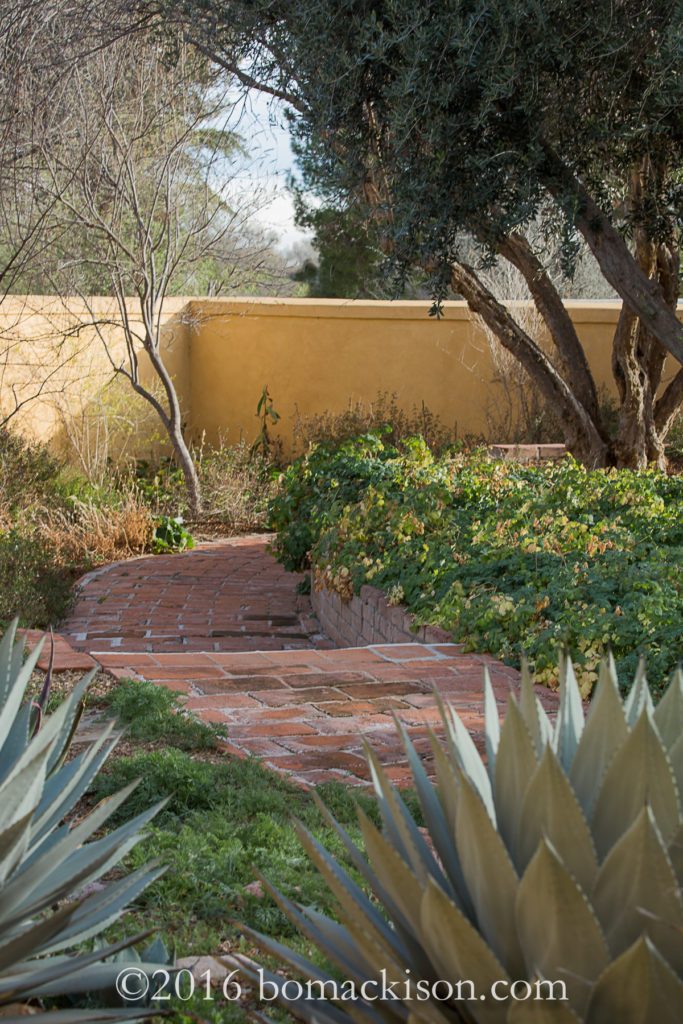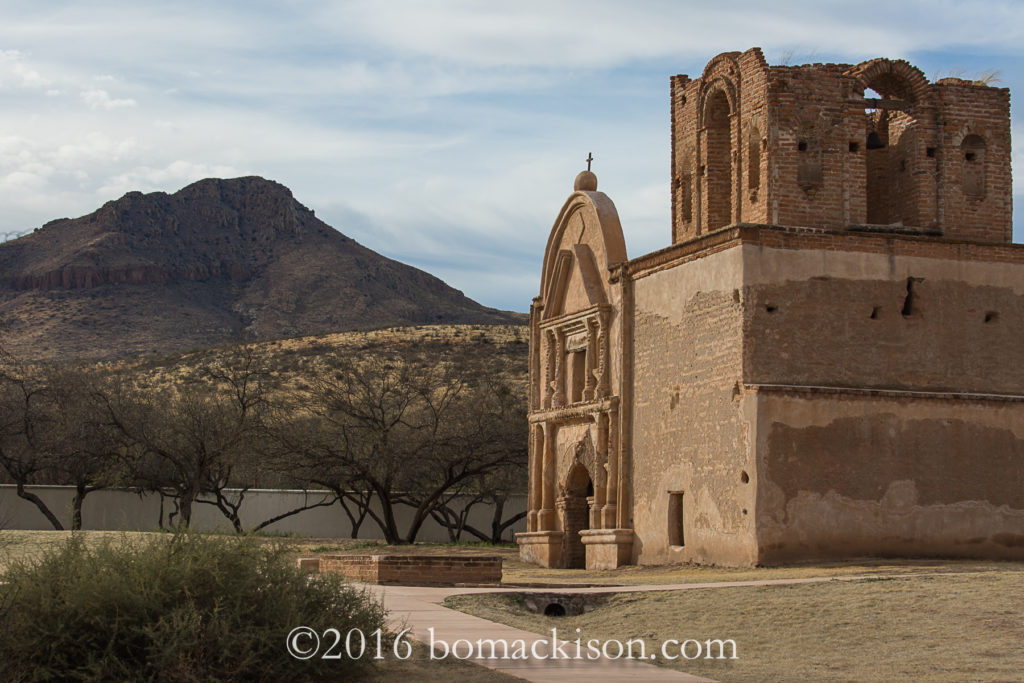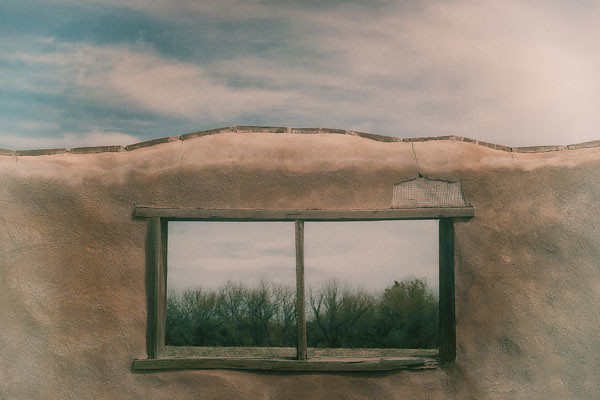
Tumacacori Mission Garden ©2016 Bo Mackison
Look past electric wires, telephone poles,
a coiled rubber hose, the 19th century stone wall
cracked open for a water spigot?
Don’t listen to the traffic on the interstate up the hill,
rumbling cars speeding from Nogales to the Border Patrol checkpoint.
Silence the background and search for sacred silence in this sacred space.
Block the sounds of horns blaring,
ignore the heated words of the couple standing near the rose bush.
Shhh.
Hear rustling leaves, whistling wind?
See shimmer in the cotttonwood trees?
These winds were in this garden, long ago.
The trees now camouflaging sparrows’ nests, they were here.
The fountain — the garden’s heart — it was here with its rippling waters.
Dust blowing from the Tumacácori Mountains – the dust was here.
Those mountains? They stand in silence and watch. They have watched all these years.
Arched doorways still shelter the walkway,
a courtyard protects a painted statue of the Virgin with her Babe.
They continue to watch.

Tumacacori Mission, Tumacacori Mountains ©2016 Bo Mackison
The yucca, the tepary beans trailing along the earth.
The nut tree saplings,
swaying in rhythm with the winds.
They witnessed. They continue to witness.
The che-che-chee of the sparrows mix with voices
raised in song — of praise and protest,
in elation and humiliation, in gratitude and in mourning.
I hear their voices, I hear the choir lift their voices in song.
Harmonizing
Chanting
The rising alleluias, the longing amens.
Voices. Do you hear them?
Che-che-cheee sing alleluia.
Siss-siss-siss, the leaves dance, twirl along the dusty path.
Hearts dancing, hold your gaze on the star hunter,
poised, aiming his arrow at the full moon.
Hidden voices in the whistling winds.
Hidden eyes, watching Tumacácori.
Listen.
Watch.
Hush.
~~~~~~
It is here that Jesuit Father Kino, traveling north from Mexico (New Spain) visited a settlement of O’odham and founded Mission San Cayetano de Tumacácori in 1691.
It is here the mission remained for 157 years, a complicated existence of conversion, Apache conflict, disease, harsh conditions.
It is here where I sit in the restored gardens, stand in the mission interior and I listen. I hear.













